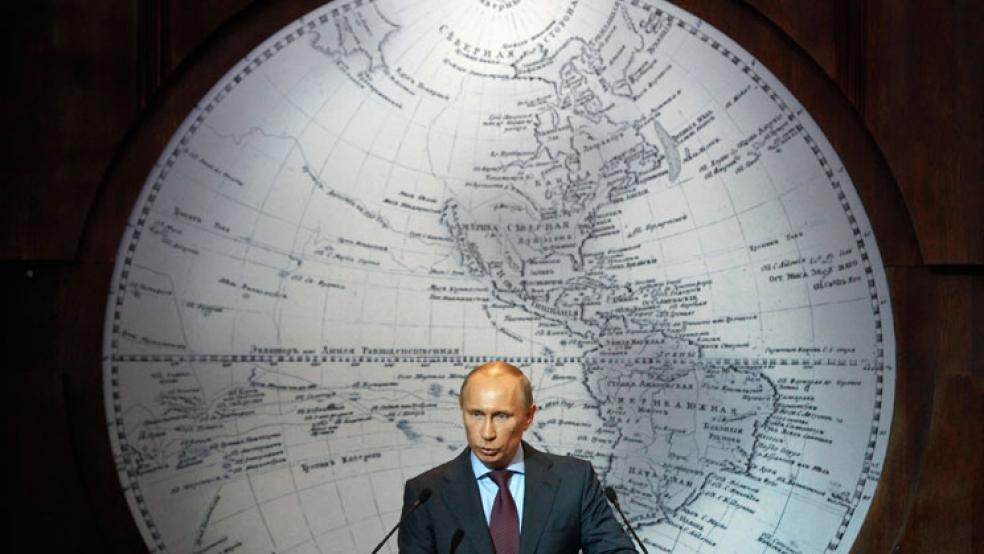President Obama and European leaders today discussed but took no immediate action on additional sanctions against Russia as a penalty for its continued aggressive behavior toward Ukraine. But while world leaders remained cautious, the financial markets continued to take action.
Less than 48 hours after Russia’s Finance Ministry had to withdraw a proposed bond offering because investors rejected Russian securities at the prices being offered, ratings agency Standard & Poor’s downgraded the country’s sovereign debt to a level just above “junk bond” status.
Related: Bond Markets Put the Squeeze on Putin
The Russian Central Bank responded by announcing an unexpected 0.5 percent increase in interest rates, to 7.5 percent, in an effort to protect the Russian ruble from further deterioration. But in mid-morning trading in the U.S., the ruble was down nearly one percent against the U.S. Dollar, pushing the currency closer to its 52-week low. The move by the central bank was its second unanticipated rate increase in recent weeks. Last month, it moved rates 1.5 percent, calling it a temporary measure at the time.
The White House on Thursday morning released a “read-out” of the President’s call with the leaders of France, Germany, Italy and the United Kingdom, reporting that the Ukraine government had taken substantial steps to comply with an agreement reached earlier this month in Geneva to try to de-escalate the tensions in the country.
However, the White House reported, “The leaders also agreed that Russia had not reciprocated – including by not publicly supporting the Geneva accord, nor calling on armed militant groups to lay down their arms and leave the government buildings they’ve occupied – and had in fact continued to escalate the situation through its increasingly concerning rhetoric and threatening military exercises on Ukraine’s border.
Related: A Gas Deal with China Could Bail Out ‘Mother Russia’
“The President noted that the United States is prepared to impose targeted sanctions to respond to Russia's latest actions. The leaders agreed to work closely together, and through the G7 and European Union, to coordinate additional steps to impose costs on Russia. The leaders underscored that Russia could still choose a peaceful resolution to the crisis, including by implementing the Geneva accord.”
Analysts are predicting continued problems for the Russian economy as investors concerned about the risk of open conflict in Ukraine pull money out of the country and GDP declines. Inflation is currently running at a rate of more than 7 percent in Russia.
Top Reads from The Fiscal Times





